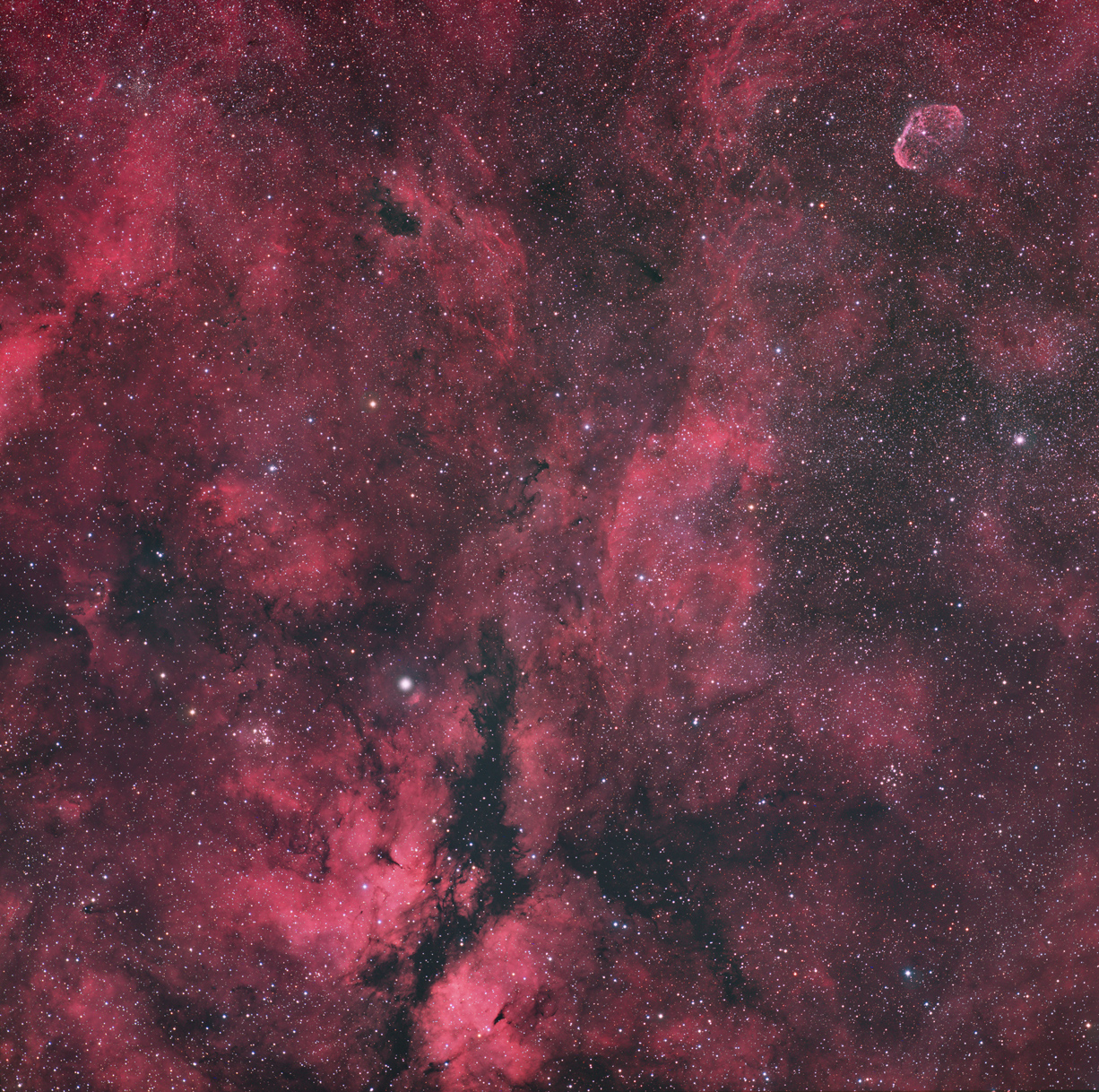Cygnus Broadband Widefield
Characteristics:
Magnitude: Not Applicable
Size: FOV of full frame image (uncropped) = 3.9 x 3.9 degrees
RA: 20h 19m 08s (J2000)
Dec: 39 degrees 40' 27" (J2000)
PA: +270 degrees
Description:
The region around the star Sadr, also
known as Gamma Cygni, is full of emission nebulosity (designated SH-108
which includes IC
1318). IC 1318B is
located within the constellation Cygnus and is close to other
famous landmarks along the summer Milky Way, like the
Pelican and North American Nebulae, the Crescent Nebula (upper right),
and the
Bubble.
This
area is very rich sulfur, hydrogen, and oxygen gases which are excited
by high energy stars in the region to emit in SII (around 672nm), HII
(656nm), and OIII (around 495nm). The above image was taken with
broadband (RGB) filters. A previous
image of mine from 2013 shows a mapped color composite in which SII
is mapped to the Red channel, HII
is mapped to Green, and OIII is mapped to Blue (Hubble Palette).
More information about this region can be found at Rob
Gendler's website.
Photographic
Details:
Dates: August 27 and 28, 2014
Scope: Takahashi
FSQ106 at f5 on the Takahashi NJP
Mount
Autoguider: SBIG ST-402 with
60mm guidescope, focal length 227mm
Camera: Apogee U16M at -20C, with
7 position 50mm square filter wheel (Apogee FW50-7S)
Filters: Baader
broadband
filters, 50mm square
Exposures: Total
RGB exposure 9 hours.
Post-processing:
Calibrated, aligned, and stacked in Maxim, followed
by DDP
in ImagesPlus (IP). Further processing in Photoshop CS (16
bit format).
Please
note: Graphics on this website
may not be reproduced without author permission.
Back to Nebulae
Home
